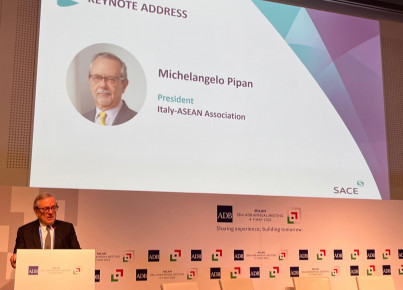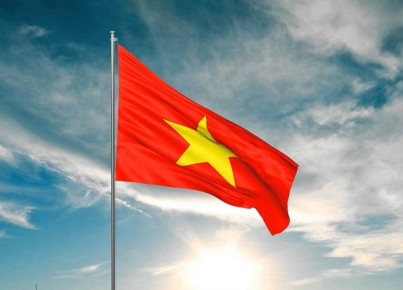The function of the military in the political arena is not monolithic, and variations in this role are clearly evident in the context of Southeast Asia
By Aniello Iannone
For several Southeast Asian countries, including Indonesia and Myanmar, the role of the military in domestic politics has been one of the most significant elements in the development of the region's political history. Indonesia's history is a telling example, with a military regime in power for several decades in the second half of the 20th century that eventually went through a process of transition to democracy in the late 1990s. Thailand also provides an example of a country where the military influenced constitutional changes to insert itself into the political decision-making process. This has created a unique political dynamic in the country, with the military playing a major role in national politics. On the other hand, there are countries such as Myanmar, where the military has also tended to use force and interference in national decision-making processes.
Indonesia and the role of the military
'Indonesia declared its independence at the end of Dutch colonial rule and Japanese occupation in 1945. Since then, the country has gone through a series of significant reform and transformation events, including developments in the armed forces. The Indonesian National Armed Forces (Tentara Nasional Indonesia, TNI), formerly known as ABRI (Angkatan Bersenjata Republik Indonesia), was established in 1945 with the primary task of protecting and defending the nation. This role was paramount during the struggle for independence against Dutch invasion after Japan left the country defeated during World War II. During this period, the role of the TNI was emphasized, and senior military leaders stressed the importance of the TNI in resisting the Dutch invasion. This situation laid the foundation for indoctrination and military-civilian involvement in Indonesian politics.
However, when the TNI failed to achieve a satisfactory role in line with its aspirations in Indonesian politics under Soekarno's leadership, a political and economic crisis that hit Indonesia in the 1950s during Soekarno's "guided democracy" was an opportunity for the military to take action to get involved in Indonesian politics. These events occurred at the same time as a series of tensions between the military, radical Muslim groups, the rebellion of the Communist Party Indonesia (PKI), tensions also due dalal economic crisis due to inadequate economic policies of Soekarno The situation peaked in the coup led by Soeharto on September 30, 1965, who later assumed the presidency in 1968.
The main consequences of the 1965 events, besides the genocide and elimination of the PKI, saw the establishment of an authoritarian regime from 1965 to 1998. The Soeharto era, often called the New Order, is an example of an authoritarian regime established through a military coup. It is important to consider the significant role played by the armed forces until the fall of this regime and during the initial period of "reformasi," which refers to the reform movement that followed Soeharto's resignation. The TNI, known as ABRI (1959-2000), played a key role as the backbone of the state, being until the fall of the regime the largest political organization in the country. In Indonesia, the ABRI had a strong ideological connection based on its involvement in the civil affairs of the state. The concept of "dwifungsi" (dual-function) refers to military application in the military's own areas to those more belonging to the state's bureaucratic apparatus, played a crucial role in regimes such as the one under Soeharto in Indonesia, with effects still well present in contemporary Indonesia.
The politico-military regime in Thailand
The military role in Thailand's political history has been a crucial element since the end of the absolute monarchy in 1932. The country has experienced a series of military coups and political tensions that have influenced the path of democracy in this nation.
A significant period in Thai politics was when Thaksin Shinawatra came to power in the late 1990s. During those years Thailand was marked by a sharp decline in levels of democratization also due to the 1998 financial crisis and the victory of the Thai Rak Thai party, led by Thaksin, in the 2001 elections. This victory created social divisions that sparked conflicts between pro-monarchy groups, such as the People's Alliance for Democracy (PAD), and pro-democracy groups, such as the United Front for Democracy Against Dictatorship (UDD). Political tensions led to the first military coup in 2006, which saw the direct intervention of the military to stop the electoral process that would return Thaksin to power. These social conflicts hampered political stability and elections for several years. Only in 2011, through an agreement between anti-regime groups, the military and the monarchy, did Yingluck Shinawatra, Thaksin's sister, become prime minister. The political crisis of 2013-2014, including anti-government Shinawatra protests and the emergence of movements such as the pro-monarchy People's Democratic Reform Committee (PDRC), led to the dissolution of parliament and early elections. However, elections were not held because of the military coup by the National Council for Peace and Order (NCPO), led by General Prayuth Chan-o-Cha. Thailand remained under military rule until 2019.
It is important to note that the 2014 coup was different from the 2006 coup because of the strong military involvement in the government and the 2017 constitutional changes that gave significant advantages to the military in the prime ministerial elections. This reflects the evolution of the military's role in Thailand's political process. This significant role of the military is still evident in the 2019 and 2023 general elections, where the selection of the prime minister continues to depend on the Senate, composed of members who are not directly elected, many of whom come from the armed forces and police. This reflects the persistence of the strong military role in Thai politics and the complexity of the political landscape in this country.
The military regime in Myanmar
Analysis of political and economic development in Myanmar reveals a complex and interesting picture worthy of further study. Since the 1962 coup, during which U Nu's government was overthrown by the military, the action was seen as a response to U Nu's economic policies considered a betrayal of socialist principles. This assessment stemmed from the perception that the economic measures taken by the U Nu government were at odds with the ideological foundations of the regime, based on socialism that led Myanmar went through a political transformation based on a one-party regime controlled by the military.
During this period, the military played a significant role in controlling the economic aspects of the country. Today, Myanmar's political history has become further complicated with a series of events that have left the country lagging behind, both in terms of development and political participation, compared to the rest of Southeast Asia.
Political instability and a series of military coups have been factors that have hindered the process of economic development in Myanmar. However, the lens through which to view the slow pace of this development should be broader, including an understanding of why there is military intervention. The comparison with Thailand offers an interesting analogy. Although both have suffered the same number of coups, Thailand has experienced much more robust economic development than Myanmar.
The role of the military in the two countries has different dynamics. In Thailand, the military role has shifted from "janitor" to "ruler," especially after the coup and the 2019 elections. In contrast, in Myanmar, the military maintains a "praetorian" position, especially after 2011 and the 2021 coup. This indicates a direct intervention of the military in the political processes and development of the country. These conditions are not only influenced by the military role, but also by the significant contribution of elites, especially during the government of Aung San Suu Kyi. This government reflects a failure in various aspects of Myanmar's domestic political policies, especially with regard to the serious issues of genocide involving the Rohingya ethnic group.
Conclusion
The military role in regime management, particularly in the post-World War II period, has been the main focus in theoretical policy analysis. It is important to note that the military role is not monolithic, and variations in this role are clearly evident in the Southeast Asian context. For example, in Indonesia and Thailand, the armed forces not only play the role of security maintainers, but also act as governors (Thailand) or semi-governors. At the same time, in Myanmar, the military role is purely praetorian in nature, manifesting a propensity to preserve the status quo without any substantive dialogue with the opposition. This decision reflects a strong determination to keep policy in line with the vision and interests held by the Myanmar Armed Forces.






